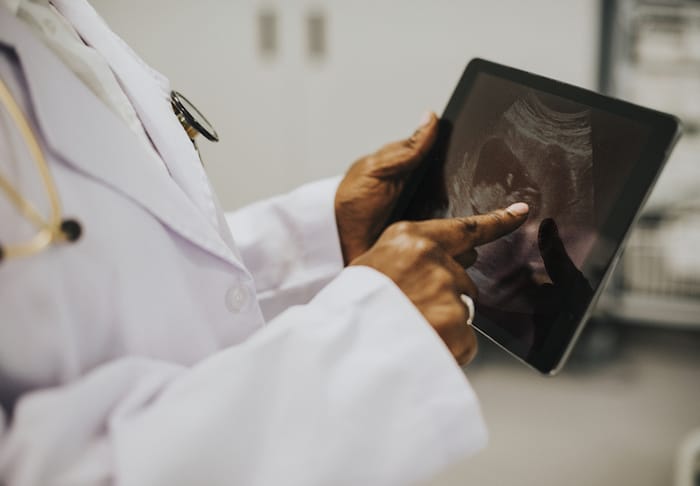- Calls to this hotline are currently being directed to Within Health, Fay or Eating Disorder Solutions
- Representatives are standing by 24/7 to help answer your questions
- All calls are confidential and HIPAA compliant
- There is no obligation or cost to call
- Eating Disorder Hope does not receive any commissions or fees dependent upon which provider you select
- Additional treatment providers are located on our directory or samhsa.gov
Effects of Eating Disorders on the Reproductive System
Eating disorders impact more than someone’s mental health. These disorders affect every part of the body. This post will cover the effect that eating disorders have on the reproductive system.

What is the Function of the Reproductive System?
The reproductive system is a group or organs and hormones that make it possible for us to reproduce! The male and female reproductive systems are made up of different organs, but both systems are designed to create new life.
One important aspect of the reproductive system that eating disorders can have a big impact on are hormones. The reproductive system is intimately linked with the endocrine system. The endocrine system is responsible for managing the hormones in our bodies.
Eating disorders can impact the body’s ability to produce the appropriate hormones and carry out normal reproductive functions [1]. Nutrition is energy for the body. Anytime the body is lacking in energy, it is going to prioritize certain body functions over others.
This is why eating disorders can get in the way of someone’s ability to reproduce. Even if someone isn’t looking to have a child right now, it’s important for body to be functioning normally.
Any shift in normal body functioning signals that something is wrong. In this case, changes to the reproductive system in people with eating disorders is a sign that your body is struggling!
Related Reading
- Health Problems from Disordered Eating
- Your Brain and Eating Disorders
- How Disordered Eating Affect Respiration
- Circulation Issues from Disordered Eating
- Digestions Issues from Anorexia and Bulimia
- What eating Disorders Do to the Muscloskeletal System
- How Disordered Eating Affects Your Endocrine System
- How EDs Affect Your Hair, Nails and Skin
- Your Immune System and Disordered Eating
Eating Disorders and Menstruation
A common symptom of anorexia and bulimia are changes in the menstrual period. Disordered eating can lead menstrual cycles to become irregular or missing completely. In fact, the loss of the menstrual period (aka amenorrhea) is seen in about 90% of people with anorexia and up to 50% of people with bulimia [1].
Some studies show that irregular menstruation can impact thyroid health [1]. This makes sense because the thyroid is part of the endocrine system. Remember, the endocrine and reproductive system are linked!

Do Eating Disorders Cause Infertility?
It’s not impossible for someone to conceive while struggling with an eating disorder. However, it’s highly unlikely to get pregnant while experiencing amenorrhea! [1].
In some studies, about 17% of women in infertility clinics are struggling with an eating disorder. While most research focuses on female fertility and eating disorders, there is some information out there that shows that males with eating disorders may also experience changes to their reproductive system.
Males who are undernourished due to restrictive eating or abusive exercise may experience changes in their sperm count and sperm quality [2]. However, research shows fertility can return when someone recovers from their eating disorder [1].
Eating Disorders and Pregnancy
As mentioned above, it’s possible to have an eating disorder and still get pregnant. Even though someone’s reproductive system was functioning enough to conceive, it doesn’t mean that their body will be able to function optimally during pregnancy.
In fact, disordered eating during pregnancy can be dangerous for the pregnant person and their baby. Some potential consequences of this include:
- Bone loss for the pregnant person
- Growth restrictions for the baby
- Fetal developmental problems
- Low birth weight due to lack of nutrients
- Fatigue beyond what is normal in pregnancy
- Electrolyte abnormalities
- Dehydration
- Dizziness
- Increased risk of prolonged labor
- Increased risk of miscarriage [3]
However, there are hormone treatments available that can help support pregnant bodies in carrying a child! [4].

Fertility and Reproduction After Eating Disorder Recovery
Studies show that after recovery, fertility can return. It may take time, but the body can restore itself with proper nutrition [3]. Medical complications from eating disorders are common. This is why working with a doctor who is qualified to treat eating disorders is so important.
During the recovery process, your doctor should be checking in on your health to make sure medical needs are being met. The importance of nutrition is another reason why eating disorder treatment typically includes nutritional counseling from a registered dietitian.
A registered dietitian can help someone work through any disordered beliefs and behaviors with food that are getting in the way of maintaining a healthy weight.
[1] Synder. (2014). Eating disorders in adolescents and young adult women: Implications for reproductive health. Contemporary OBGYN. Retrieved November 29th, 2021 from https://www.contemporaryobgyn.net/view/eating-disorders-adolescents-and-young-adult-women-implications-reproductive-health [2] Green, J. (2014). Can Eating Disorders Cause Male Infertility? Center for Vasectomy Reversal. Retrieved November 29th, 2021 from https://www.vasectomyreversalflorida.com/blog/2018/07/can-eating-disorders-cause-male-infertility/ [3] Lindberg, S. (2020, September 28). Could you be experiencing “Pregorexia?” Here’s how to break the cycle. Healthline. RetrievedSy November 29th, 2021 from https://www.healthline.com/health/pregnancy/pregorexia [4] Tessler-Karfunkel, E. (2014). Eating disorders: The hidden hormonal effect on fertility. The Science Journal of the Lander College of Arts and Sciences, 8(1), 42-50.
Author: Margot Rittenhouse, MS, LPC, NCC
Page Last Reviewed and Approved By: Jacquelyn Ekern, MS, LPC 12.21.21

